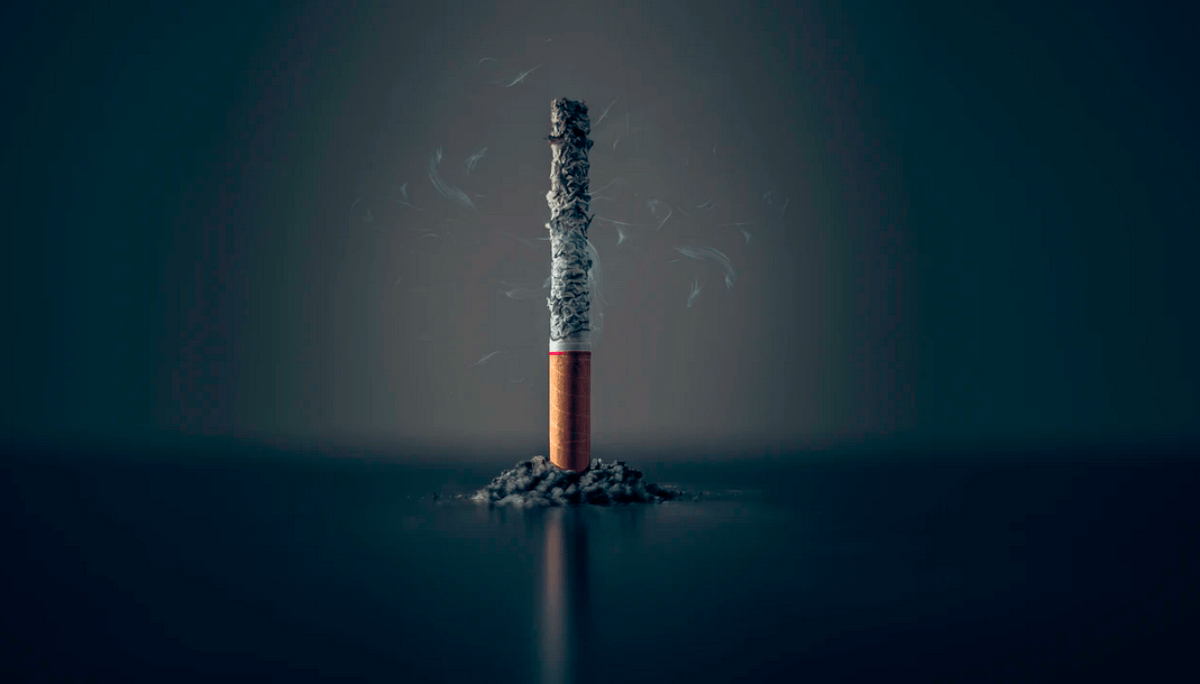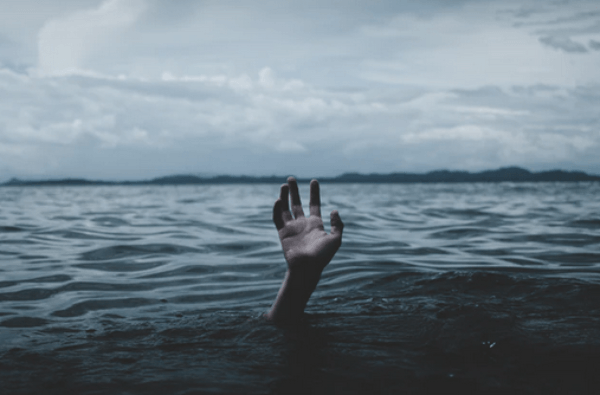 Addiction is tough on the addict as well as their friends and family. Accepting they have a problem, and starting an addiction treatment is a difficult step to take. So, before enrolling in a formal drug rehab center, many benefit from free interventions through drug addiction hotlines.
Addiction is tough on the addict as well as their friends and family. Accepting they have a problem, and starting an addiction treatment is a difficult step to take. So, before enrolling in a formal drug rehab center, many benefit from free interventions through drug addiction hotlines.
The drug addiction hotlines help addicts find suitable treatments, fight through suicidal thoughts, depression, and loneliness. In this piece, we shall dig deeper into drug addiction hotlines by looking into what they have to offer, check if they are free, and if the conversations held are confidential.
Note: talking to a representative on a drug addiction hotline isn’t a replacement for drug addiction treatment. Instead, it’s the first step of getting proper help when you need it.
Contents
- 1 What is a drug addiction hotline?
- 2 Drug addiction hotline numbers
- 3 Do you need help?
- 4 How to call a drug addiction hotline
- 5 Benefits of a drug addiction hotline
- 6 What treatment options are available?
- 7 Public vs. private hotlines
- 8 How do you know the drug addiction hotline is legit?
- 9 Instances you shouldn’t call hotlines
- 10 Are you afraid to make the call?
- 11 FAQs
- 11.0.1 Can I start my drug addiction treatment immediately after the call?
- 11.0.2 Are drug addiction hotlines free?
- 11.0.3 When I call the substance abuse hotline, is the conversation shared?
- 11.0.4 Do I get into trouble for calling drug addiction hotlines?
- 11.0.5 Am I obliged to enroll in a rehab center?
- 11.0.6 Can I go to jail for calling the drug addiction hotline?
- 11.0.7 Are there drug overdose hotlines?
What is a drug addiction hotline?
It’s simply a telephone number that addicts, and concerned persons can call to get free information on drug addiction treatment and related resources. Persons addicted to alcohol, prescription medication, or other illegal substances can get detailed information on the support they need to recover, including local rehabilitation centers and effective treatment programs. On the other hand, friends and family can call the drug addiction helpline to learn of the addiction tell-signs their loved one is showing.
The hotlines operate 24/7 and are manned by trained employees and volunteers. In most cases, these representatives have experience with drug addiction, either with a loved one or they were once addicts.
When you call a drug addiction hotline, you receive support without judgment or reprimand. Your call and conversation remain private to preserve anonymity and protect you from stigma. As you shall learn, the idea of drug addiction hotlines is to nudge you in the right direction without pressuring you.
Drug addiction hotline numbers
Below is a list of drug addiction hotlines for those seeking help with addiction or need more information on how to help a loved one.
- SAMHSA (Substance Abuse and Mental Health Services Administration) – 1-800-662 – HELP (43757). This hotline offers detailed information on general addition and free referrals in Spanish and English. The service operates 24/7.
- NCADD (National Council on Alcoholism and Drug Dependence) – 1-800-NCA-CALL (622-2255). This hotline offers information and assistance on affiliate programs in the USA.
- National Helpline Number – get help on 1-844-289-0879.
Do you need help?
 Before you can call the hotlines above, you need to understand that you need help to beat the addiction. Seeking help doesn’t mean that you are weak but, on the contrary, strong enough to admit the truth to yourself.
Before you can call the hotlines above, you need to understand that you need help to beat the addiction. Seeking help doesn’t mean that you are weak but, on the contrary, strong enough to admit the truth to yourself.
The number one sign of addiction is when you cannot focus on anything else until you get your daily dose of the substance you are using. If you spend several hours a day fixating on where, when, and how you will use the substance, then you are addicted, and you need to address the situation ASAP.
In the early stages, the addiction takes a backseat to your daily routine, but in no time, you’ll be planning your routine around the substance. The dependence creeps up on you, and in most cases, it takes a friend or family pointing out the changes for you to notice it.
Another way to know you need help is when you start avoiding your friends and make new friends, most of whom share in your love for the substance. When you notice this, it’s a strong sign that you are addicted.
Aside from the above signs, substance abuse causes health problems in the body and mind. Below are some symptoms you should be on the lookout for.
- Mental health – many drugs cause lots of changes to the mental state of the user. These changes could manifest as depression, increased agitation, anxiety, and psychosis.
- Physical health – the physical effects of drug abuse can be mild or fatal depending on several factors, including the amount of substance abused, how long, and the type of substance.
If the mental and physical health symptoms are severe, you should make plans to see a health specialist first before checking into a rehab facility.
How to call a drug addiction hotline
Once you’ve determined you need help, it’s time to make that call. But how do you or your loved one make that much-needed call? Below is a step-by-step guide on how to call a drug addiction hotline.
Step 1: Find the right hotline to call. If you suspect an overdose or any other emergency, you should call 911 instead. But if it’s not an emergency, proceed by calling hotline service. Remember, different hotline numbers handle specific substance abuse. For instance, if the addiction is to opioid painkillers, you should call a prescription drug addiction hotline. For carers or parents to teenagers struggling with addiction, the best number to call is a teen drug abuse hotline.
Step 2: Speaking to a hotline representative can be an overwhelming process since they will give you a lot of information to work with. Also, it’s a sensitive and personal matter, and you will need to divulge as much information as you can. To help you remain objective, and get all the information you need, prepare some questions beforehand. The questions include:
- What are the outpatient and inpatient addiction treatment options available for someone in my situation?
- How long will the withdrawal, detox, and the rehabilitation of the substance addiction take?
- How much will the rehabilitation cost?
- Are there rehab facilities close to your location?
- Will insurance cater to the rehab and treatment costs?
- How do I find a good rehab center in my location?
- Are there free addiction recovery resources in my location? If yes, where?
- How can I help a family member or friend struggling with addiction?
Step 3: When you call the number, there are high chances an automated machine will greet you. Listen carefully and select the appropriate options, including the location and language. Getting the right selections is important to have your call routed to the best hotline representative.
Step 4: Once you have a representative on call, be audible, and answer the questions honestly. Below are some questions you’ll have to answer. Bear in mind that the questions will vary depending on the hotline you call. Generally, the questions include:
- What substance is being abused?
- How long have you abused the substance?
- What is the size of the dosage? What are the intervals between use?
- How old are you?
- Where do you live?
- What is your current living situation?
- Are you ready for treatment?
- Do you have physical disabilities or mental health problems?
Note: Honesty in answering these questions is key. It will determine the information you get. Only focus on your recovery – it’s the only thing that should matter.
Benefits of a drug addiction hotline
Calling a drug addiction hotline number could change your life and save it. By making the call, you are taking the first step to getting help with drug abuse. The great thing about drug addiction hotlines is that they are manned by trained individuals who are rooting for you to get clean.
Other pros of using drug addiction hotline include:
- It is free
- The conversations are confidential
- There is no judgment
- You can start your treatment any time
What treatment options are available?
Different addictions require different treatments and approaches. Below are the most common treatments that have worked like magic in the past.
- Behavioral therapy – this treatment is designed to help the addict learn some skills that can help them implement meaningful change in their life. The treatment is delivered through therapy. They learn adaptive thoughts and new beliefs that help keep them from using. Moreover, they develop problem-solving skills and new techniques that they can use to avoid substance abuse in the future.
- 12-step programs – these are effective in helping individuals remain sober. The programs rely heavily on social fellowship and support, as well as spirituality.
- Motivational interviewing – this treatment helps individuals to develop unique motivations that fuel them to stay sober. With the skills they learn, they can create plans that will keep them away from drugs.
- Contingency management – this treatment is all about positive reinforcement. An individual gets rewards for staying drug-free.
- Medication – it is useful in some addiction cases. The medication blocks the effects of the substance abused. It helps to relieve cravings and get rid of withdrawal symptoms.
- Alternative treatments – these treatments include yoga, meditation, acupuncture, music and art therapy, and wilderness programs.
- Substance abuse is caused by a myriad of situations. As a result, there are lots of approaches to treat addiction. Each program is tailored to every patient for effectiveness.
Public vs. private hotlines
Though they serve the same purpose that is helping addicts get clean, they are different in how they achieve this purpose. Public hotlines are not affiliated with specific drug treatment centers. They provide callers with the information they need to access the options available in their locations. The information they provide includes resources available in local treatment centers and the mode of payment they support.
On the other hand, private drug addiction hotlines are affiliated with specific treatment centers and networks. Though they offer information on treatment and resources you can use, they also encourage callers to get treatment at specific facilities – usually their facilities. Private drug addiction hotlines are a form of marketing for private facilities in the drug addiction space.
If you aren’t sure if the hotline is private or public, ask the representative if they are attached to specific drug addiction treatment centers. Yes, you are allowed to be direct and blunt about it.
How do you know the drug addiction hotline is legit?
There are lots of drug addiction hotlines you can use. These hotlines differ in the quality of operation and the treatment centers that they work with. If you are uncomfortable speaking to a representative or with the methods they chose to deliver the information, you should be wary of the hotline service and the organization as a whole.
Note: Hotlines shouldn’t charge money for the information they provide or their referrals (whether they are public or private). The treatment facility shouldn’t ask for money to help in a time of need. If they do, you should hang up and try another hotline.
Drug addiction hotlines should encourage you to seek treatment from a specific facility. However, they shouldn’t charge you for the information or support they offer. There are other resources you can use to get the information and support at no cost.
Moreover, be wary of hotlines that try to push bonuses, offers, or kickbacks for choosing their facility. If the representative promises to waive insurance deductibles or to foot the cost of your room plus boarding in a treatment center while you use the outpatient program they suggest, you should run. This practice is unethical and illegal. Instead of getting you to play along, it should be a red flag to get you looking elsewhere.
Instances you shouldn’t call hotlines
So far, we’ve determined drug addiction hotlines save and change lives. However, there are instances you should not call the hotlines. These instances include:
- When it’s a prank call
- When you have no problems with substance abuse in your life or those dear to you
- If you or your loved one has an overdose or is experiencing an allergic reaction. In these cases, always call 911 and seek to address the drug addiction later
Note: if you are addicted to a drug or any substance, there’s no reason why you should not use drug addiction hotlines.
Are you afraid to make the call?
It’s an understandable feeling, but you shouldn’t be. Many people, through the drug addiction hotlines, have heard stories of others who were in their position. Remember, the hotlines are not about judgment but about helping you or your loved one through substance abuse. The drug addiction hotlines will motivate and connect you to recovery resources available in your location.
Although you need some courage to call the hotline, it is the first and easiest bit of recovery. You don’t risk anything by making the call since the conversations are confidential under the HIPAA laws. So as the representative collects your personal information according to the law, they cannot share the details without your consent. Their role is to offer drug addiction recovery options and then connect you to ideal treatment centers.
FAQs
Can I start my drug addiction treatment immediately after the call?
Yes, you can. When you call the addiction hotlines, they will help you find a substance abuse treatment program that is perfect for you – whether it is in one of their facilities or a local treatment center. With that said, if the representative cannot aid you in getting a rehabilitation center, they will offer recommendations of facilities you should look into.
Are drug addiction hotlines free?
Yes, they are, and you can call them from anywhere. Their focus is to get you the help you need. They wouldn’t want anything to get in the way of that. As such, they do not charge anything for the consultation. If they did, it would be difficult to get people to call willingly. Moreover, the numbers are available both day and night, and they offer support for different languages.
Now, anything you say on the call is confidential. The organizations don’t expose you by sharing your details with anyone. Preserving anonymity is the one way they make your recovery process easier and free of judgment from the community. Also, they need to abide by confidentiality policies.
Do I get into trouble for calling drug addiction hotlines?
Many people struggling with drug abuse have concerns about getting into trouble with the law after calling the drug addiction hotlines. But this does not happen because the hotlines do not share your information with other companies.
Am I obliged to enroll in a rehab center?
Calling the drug addiction centers does not place you under the obligation of going through treatment (though it would be great if you would). Trained counselors receive your call answer questions you might have. They also guide you through the process without forcing it on you. The counselors are all about voluntary treatment. So whether you want to enroll in drug rehab or not after the call, it’s entirely up to you.
Can I go to jail for calling the drug addiction hotline?
No, you cannot. No hotline call land you in trouble with the justice system. The fact that you are calling means you are contemplating getting help with substance abuse. They want to support and nurture that thought in the best way they know how to. On the flip side, not getting help can land you in trouble, including losing custody of your kids, crime, or even jail.
Are there drug overdose hotlines?
If you or a loved one experiences an overdose, you should call 911 immediately. Alternatively, you can call the National Poison Control Center. It is a national resource that assists with drug overdose scenarios. Do note that the hotlines don’t have the equipment to handle emergencies that need immediate medical help.
